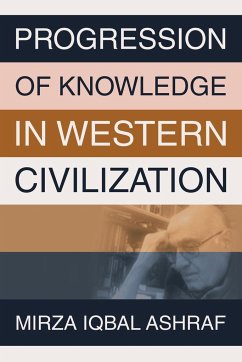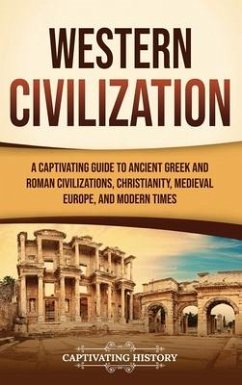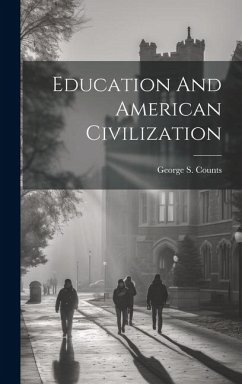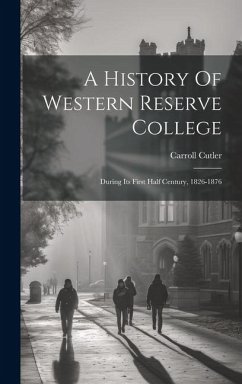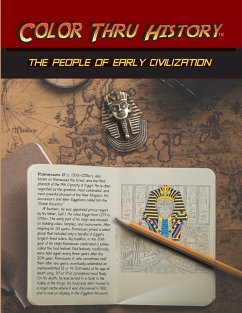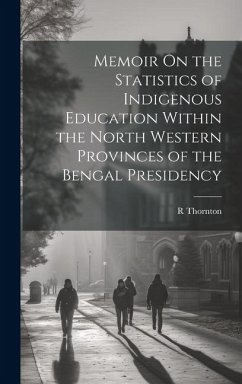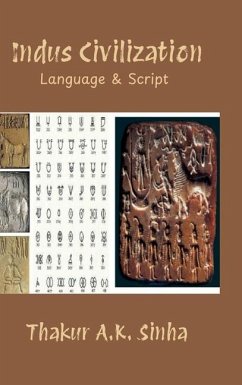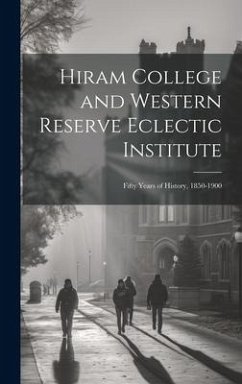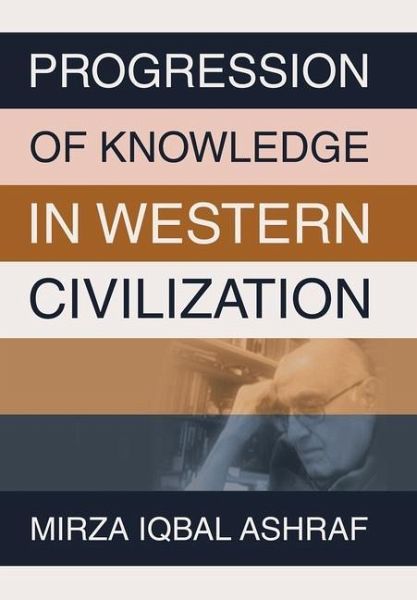
Progression of Knowledge in Western Civilization
Versandkostenfrei!
Versandfertig in über 4 Wochen
48,99 €
inkl. MwSt.
Weitere Ausgaben:

PAYBACK Punkte
24 °P sammeln!
The word civilization, which is a relatively recent application from eighteenth-century, when came into currency, is generally invoked more with a rhetorical flourish than argued in philosophical perspective. But history of knowledge considers its true object is the study of human mind, to know what his mind has believed, thought, and felt in diverse periods of its progression in the history of a civilization. Mirza Iqbal Ashraf, as a research scholar of Islamic and Western philosophies identifying the "Four Explosions of Knowledge" from ancient to modern time of history of knowledge, offers t...
The word civilization, which is a relatively recent application from eighteenth-century, when came into currency, is generally invoked more with a rhetorical flourish than argued in philosophical perspective. But history of knowledge considers its true object is the study of human mind, to know what his mind has believed, thought, and felt in diverse periods of its progression in the history of a civilization. Mirza Iqbal Ashraf, as a research scholar of Islamic and Western philosophies identifying the "Four Explosions of Knowledge" from ancient to modern time of history of knowledge, offers the readers in Progression of Knowledge in the Western Civilization uniquely within philosophical perspective that the Western world is a civilization of knowledge. This also means, whereas it is important to understand today's world so that we can deal with our contemporary period's civilizational challenges, it will be incomplete if we do not assess that modernity is born from the progress made by the knowledge of the past thinkers. But knowledge does not arrive fully formed; it requires many minds, specifically those minds which are free from the civilization's religious, cultural, and geophysical trappings. In the Progression of Knowledge in Western Civilization, Ashraf has expounded that even in modern time, no knowledge is complete without visiting the knowledge of the past, especially of the great thinkers of Classical Greek period, the scholars at the House of Wisdom in Baghdad, and the famous centers of knowledge at Cairo, and Cordova of Arab Spain. In this book, the author has discussed when some other regions of the world might be familiar with philosophy and science, in one way or another, why such a treasure of knowledge emerged particularly in Greece that became a foundation of voluminous work of literature in almost every field of knowledge, and how it amazingly became the foundation of the history of progression of knowledge in the Western civilization, which is timelessly flourishing until today.




